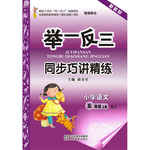题目内容
James Stallman Rockefeller, the oldest-known U. S. Olympic medal winner and the former head of the bank that became Citigroup, died Tuesday. He was 102. Records of the U. S. Olympic Committee show that Rockefeller was the oldest American medal winner. He was the captain of Yale University’s eight-man rowing team with coxswain that won gold at the 1924 Paris Olympics - beating the Canadian team by less than 16 seconds. The oars from the winning race and the gold medal were prominently displayed in Rockefeller’s house. “I think he was really proud of that - probably more than the bank career,” said his grandson.
Rockefeller suffered a stroke on Thursday, said his grandson, who lived with him at his Greenwich home for two years, attributed his long life to a regimented(严密组织的) lifestyle: breakfast at eight a. m. , lunch at 1 p. m. , cocktails at 6 p. m. and dinner promptly at 7 p. m. . He liked plain food, without sauces or cheese, and plenty of fresh vegetables, including those grown in the garden of his estate. Rockefeller was in good health until shortly before he died. He drove his car up until last year and would review documents from the various charities and businesses he helped lead.
Rockefeller, born on June 8, 1902, was a grandson of William Rockefeller, who founded Standard Oil with his brother, John D. Rockefeller. He graduated from Yale in 1924 and served in the Airborne Command during World War II. He started at the bank, and then called the National City Bank, in 1930, following his uncle and grandfather, who were leaders of the bank. He became president in 1952, chairman in 1959 and retired in 1967. In 1955, under Rockefeller’s leadership, the bank merged with the First National Bank of New York to form Citigroup. Rockefeller also was a director of numerous companies, including Pan American Airways, Northern Pacific Railroad, NCR and Monsanto, and served on the boards of the Memorial Sloan-Kettering Cancer Center and the American Museum of Natural History.
Rockefeller and his wife. Nancy Carnegie Rockefeller, had four children. His wife died in 1994.
1.
Rockefeller lost his wife when he was____ ___.
|
A.at the age of 91 |
B.in his eighties |
C.in his early nineties |
D.in his 1994 |
2.
We can learn from the passage that ____ ___.
|
A.the American rowing team beat the Canadian team in less than 16 seconds in 1924. |
|
B.Rockefeller was the first American medal winner. |
|
C.James Stallman Rockefeller founded the National City Bank and was the first president. |
|
D.His grandson thought Rockefeller had long life because of a regimented lifestyle. |
3.
What we can infer from the passage is that ______.
|
A.James Stallman Rockefeller is a great Olympic medal winner. |
|
B.James Stallman Rockefeller was in good health until he died. |
|
C.James Stallman Rockefeller was very active in American society. |
|
D.James Stallman Rockefeller was the only grandson of William Rockefeller. |
1.C
2.D
3.C
【解析】 略

 举一反三同步巧讲精练系列答案
举一反三同步巧讲精练系列答案 口算与应用题卡系列答案
口算与应用题卡系列答案 名师点睛字词句段篇系列答案
名师点睛字词句段篇系列答案